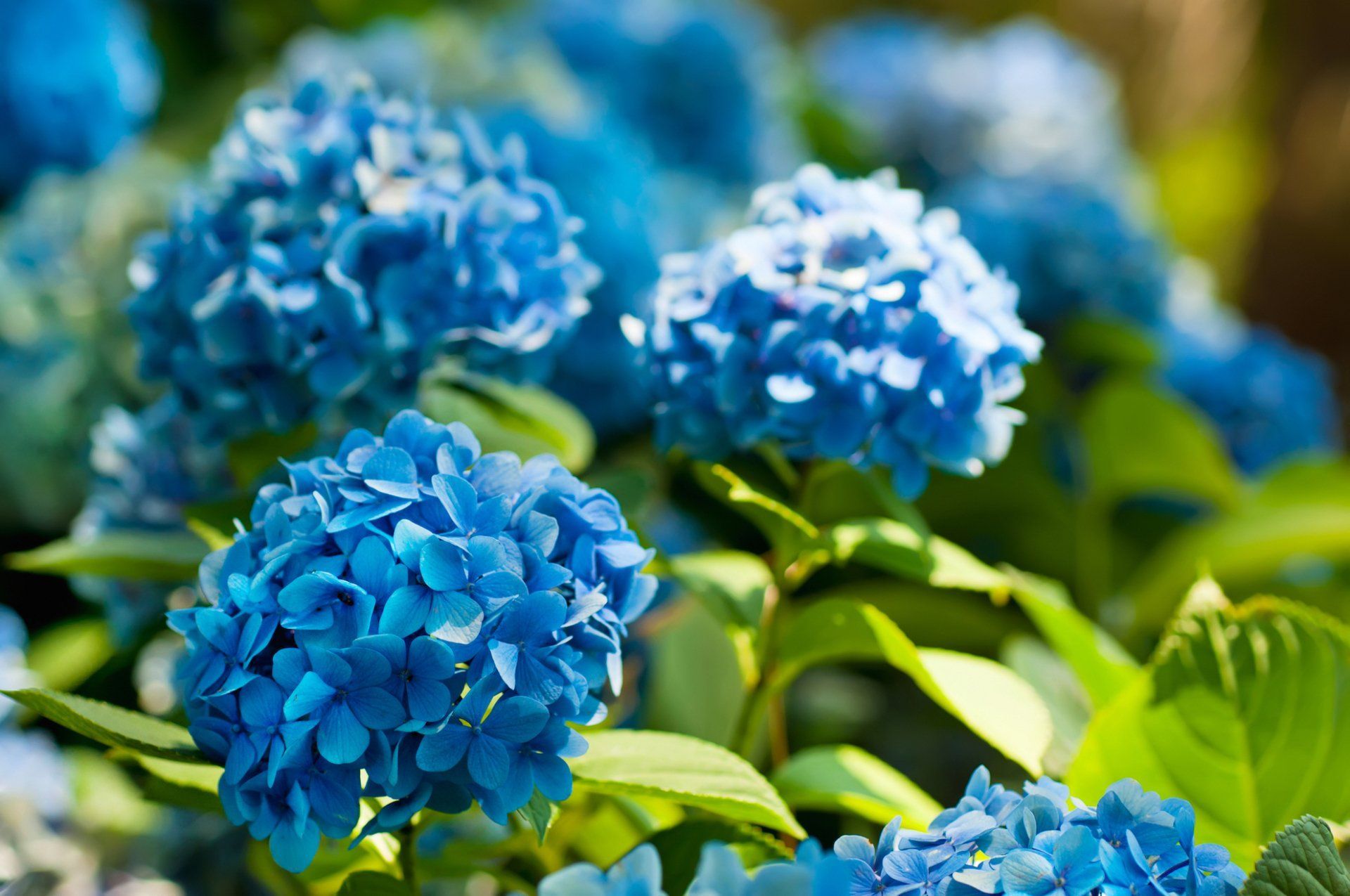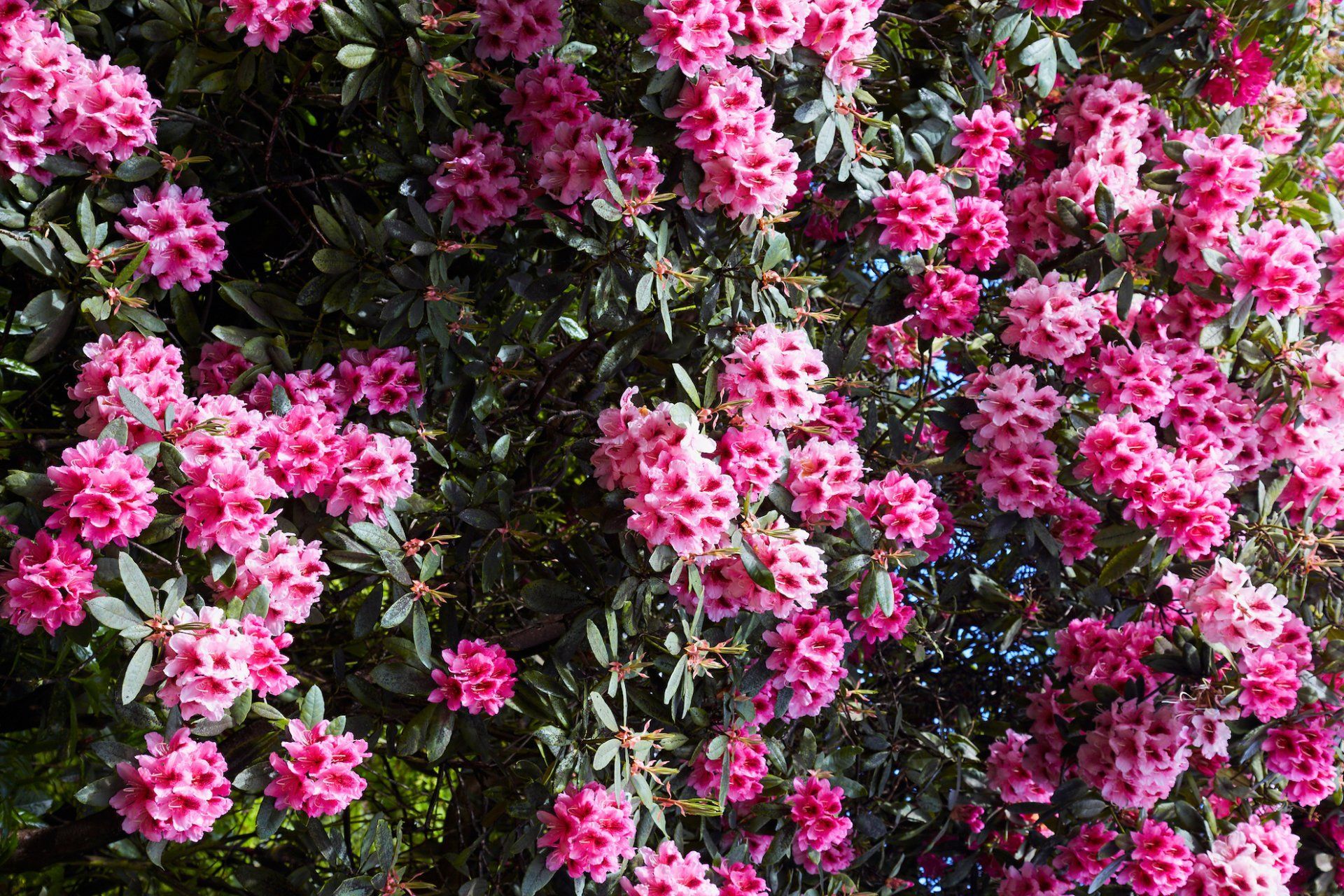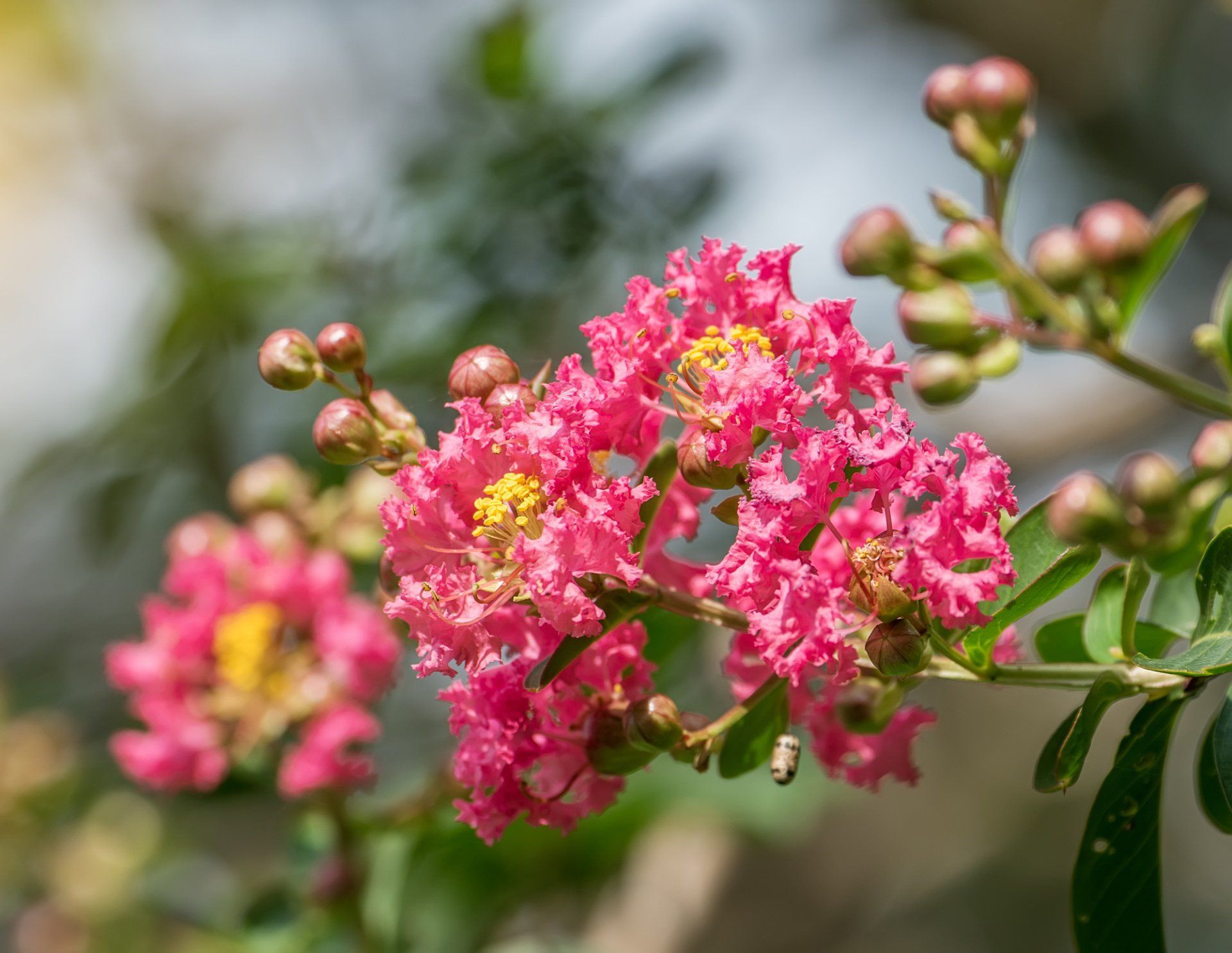Mulch Installation for Your Garden Bed
Getting a perfect, healthy, and lush garden is what most homeowners desperately dream of. In the Midwest, spending time with family and friends during the pleasant months is what forms beautiful memories to be relished forever. But proper lawn care needs a huge amount of effort and time that requires a perfect blend of regular lawn maintenance, proper fertilization, weed control, and dealing with issues as soon as they arise.
If you live in Oakville, MO, Mehlville, MO, Arnold, MO, or anywhere in the St. Louis County, we’ve created this post for you to help you get enough knowledge on mulch installation. No matter if you are an avid gardener or have just taken gardening up as your latest hobby, you’ve surely heard about weeds, which are one of the most common things that can easily ruin the beauty of your beloved lawn. If you don’t get rid of weeds on time, they won’t take more than a couple of weeks to take over your garden.
In this post, we are going to discuss everything you may need to know in terms of mulching your garden bed. So, without further ado, let’s delve deeper.
What Is Mulch?
You can think of mulch as a loose sheet or covering that you place on the soil’s top not only to protect it from different detrimental conditions but provide it with a plethora of benefits as well. Mulch installation can surely go a long way in ensuring your garden continues with its perfect and attractive appearance throughout the season. But the catch is if you don’t know how to do it properly, you can end up triggering more issues than what you have started with.
Key Advantages of Mulch Installation for Garden Bed
When the weeds in your garden bed get suppressed by mulching, you get an attractive and neat looking lawn to enjoy throughout the season. Therefore, you can rest assured of having more productive plants as they don’t need to compete with weeds anymore. But it is just one of the many benefits that proper mulching brings your way. Though it’d depend on the type of mulch you use, here’s a comprehensive look at the benefits you can expect to get from the process.
Weed Control
Mulches act like a barrier that stops weeds from growing. They limit the amount of sunlight weeds can get, which restricts their growth and eventually, minimizes their impact on your garden.
Nutrients
You can use a diverse range of mulches for your garden – both organic and inorganic. From wood chips, shredded leaves, and compost to plastic mulch, landscaping fabric, and more – a significant number of materials can be used for mulch installation. Your garden receives more nutrients from these ingredients than those that aren’t mulched. These essential elements help your plants appear in their best possible overall health.
Improved Soil Health
Over time, organic mulches break down and contribute to your garden’s soil health. They help to open up clay soils and bind sandy soils. Additionally, mulches provide beneficial earthworms and micro-organisms present in the soil with food, thus increasing biological activity in it.
Moisture Control
Organic mulches help to absorb more amount of water. They lower the impact of evaporation and help to retain moisture in the soil.
Pest Control
Some kinds of mulches come with elements such as natural oils that act as a pest repellent. Therefore, your garden becomes healthier and generates more resistance to pests, which eventually lowers your cost for pest control.
Reduced Plant Stress
Mulch works as an excellent insulator by controlling soil temperature. It means the roots of your plants remain consistently warm in winter and cool in summer, thus preventing them from becoming “stressed.”
Prevention from Erosion
On play areas and pathways, soil erosion is a common incident resulting from heavy foot traffic. Since mulch comes with various layers of different materials, it behaves as a barrier and keeps your garden free from soil-related erosion hazards. It even makes your garden being less threatened during the rains.
Regardless of the type, size, shape, and characteristic of your garden, it can benefit from using mulch. Whether you want to go for organic mulch or inorganic one, it will not only make your garden look great but keep it healthier throughout the season as well.
Different Types of Mulch
Now that you know the benefits mulching would bring your way, let’s take a look at the different types of mulches you can utilize. Though you can get a wide variety of materials for creating mulch beds at any retail gardening or home supply store, they are mainly divided into two categories – organic and inorganic. While both materials suppress weeds, organic mulches come with the added advantage of improving the soil as they decompose over time. On the other hand, inorganic mulches don’t improve the soil by being broken down. But this isn’t to say that inorganic materials cannot be a preferred option for mulch installation.
Let’s take a closer look at these two types of mulch materials.
Organic Mulches
A lot of materials can be used for creating organic mulches – from grass clippings, leaves, and compost mixes to newspaper and cardboard, nuggets, bark, and a diverse range of other plant byproducts.
Hardwood Mulch
Hardwood mulches belong to the most commonly available materials for mulching and tend to serve as an all-purpose option. Basically, hardwood mulches are wood chips consisting of recycled pallets and wood waste. After the wood is chipped and shredded, a dyed mulch is created by blending it with non-toxic, water-based dyes. Though these come in many different sizes and colors, the widely found materials include hardwood brown mulch, hardwood black mulch, and natural hardwood mulch.
Often, a dark brown dye is added to the hardwood chips by the manufacturers of mulch materials to maintain and stabilize the brown color of the product. As a result, hardwood brown mulch remains brown over time rather than fading to gray, which is a common phenomenon with natural hardwood mulches. These mulches are widely used by gardeners to enhance the beauty quotient of their homes and lawns.
Similar to its brown-colored peers, hardwood black mulch is also used as an aesthetic element by many gardeners. These are sometimes used in a playground or commercial setting and around the trees, shrubs, and flowers to generate a consistent appearance all over the landscape.
As the name suggests, natural hardwood mulch remains undyed and comes in color combination of brown, tan, and light beige. It becomes gray-brown in a couple of months and completely gray within a year.
Cedar Mulch
This material helps to create a beautiful landscaping or garden experience for visitors, thanks to it being highly aromatic in nature. Additionally, this aesthetically-pleasing mulch takes the maximum time to decompose, which lets it keep on serving as a decorative material longer than other organic mulches.
Shredded Leaves / Grass Clippings
These are readily available mulches and can be used around shrubs and trees, in garden beds, and across perennial and vegetable beds. However, remember not to apply grass clippings in thick layers and use those that came in contact with insecticides or herbicides.
Compost
Using well-composted animal manure as mulch would improve the quality of the soil and act as a nutrient-rich material. However, you shouldn’t use fresh manure as it burns plant roots and pig, cat, and dog manure as they can come with disease-causing organisms. Additionally, if it’s dry, use it with another mulch like chopped leaves to help it stay biologically active and moist.
Straw
If you want to mulch freshly seeded lawns, using clean oat, burley, or wheat straw would be another effective option. It will prevent feeding birds and rodents and keep the grass seed from getting washed away. Additionally, until straw mulch gets decomposed, it’ll preserve the moisture that will provide the seeds with a good environment for germination.
Inorganic Mulches
Here are three types of inorganic materials commonly used for mulch installation.
Plastic Mulch
Though plastic films prevent water and other nutrients from passing through due to their impermeability, you shouldn’t consider them for long-term use. Because the sun’s heat is transmitted by the plastic films, the soil beneath remains warm. However, it’s important to keep in mind that since plastic cannot be penetrated by air and water, roots tend to grow extremely close to the surface of the soil, looking for oxygen and moisture. Therefore, over time, the lack of these essentials may cause the plants to die.
Landscape Fabric
Also known as Geotextiles, landscape fabrics would be a better option for long-term use because they allow water and air to pass through while suppressing weeds. However, there are two things you need to keep in mind when considering landscape fabrics for mulch installation. First, they are costlier materials than plastic films; and second, they degrade over time when exposed to light. Hence, you need to use them in conjunction with another mulch.
Rubber Mulch
Commonly used in various gardening projects, rubber mulches are created from recycled tires, thus making the end material a highly durable one. Additionally, they offer plenty of benefits for your plants such as optimal insulation from heat, protection from insects, preventing fungal and weed growth, and a wide range of designer colors to enhance the beauty quotient of your lawn. However, while using rubber mulches, it’s important to remember that they may contain chemicals that could be harmful to your plants.
Why You Should Hire a Professional Lawn Service Provider for Mulching Your Garden
Generally, there shouldn’t be any problem with mulch installation when properly done. However, there might be some significant hazards if it isn’t appropriately performed. From making the trees vulnerable to diseases to choosing the wrong quality of material – considerable damages can happen to your garden. If you are thinking of mulching your garden, take a look at the following reasons to understand why you should contact a professional lawn care provider to do the job.
Expertise
Lawn service providers that offer professional mulching usually have years of experience in the gardening and landscaping industry. It means they come with in-depth knowledge of the entire process and are the best ones to understand different types of mulching needs of different types of plants. This means by hiring a professional mulching service provider, you can ensure optimal health and growth of your plants.
Proper Equipment
Different types of tools and equipment are needed to perform a mulch installation job properly. From landscaping rakes and high-quality bags to wheelbarrows and more – some of these tools can be difficult to maneuver for the inexperienced. Additionally, when you are unaware of proper raking or lifting techniques and aren’t properly trained, you will need a huge amount of time to complete the job if you take the DIY route. Just imagine how much fun you could have by spending that amount of time with your family when a professional lawn maintenance provider takes care of all these headaches.
Cost-Effective
One of the biggest reasons for which many garden owners tend to avoid hiring a professional lawn service provider is the cost involved. While it is true that you’d need to pay them for their services, it would be profitable for you in the long run. In our years of experience as a leading lawn care provider in the Midwest, we’ve frequently seen that improper mulching done by unprofessional persons often fail to eliminate potential damages that ultimately lead to a considerable amount of unnecessary costs over time.
In addition to these, sometimes, additional tasks need to be performed such as leaf removal, shrub trimming, etc. to get rid of fallen leaves and overgrown or dead stems or branches. These are the things for which you’ve to depend only on professionals, who’ve got the expertise to assess and address them.
Wrapping Up
As you can see, there are different things that you need to consider when choosing the mulch installation method best for your garden. Though mulching may not be an uphill task, it is a highly crucial one and needs to be done properly for the sake of better health and appearance of your garden. And proper lawn care involves a lot of things – from proper mowing and mulching to irrigation, aerating, and much more. But you don’t need to feel overwhelmed as we can help with any kind of lawn maintenance tasks you might need in the Midwest. Just go through our services, contact us, and see how we can help your lawn remain at its best health throughout the year.



